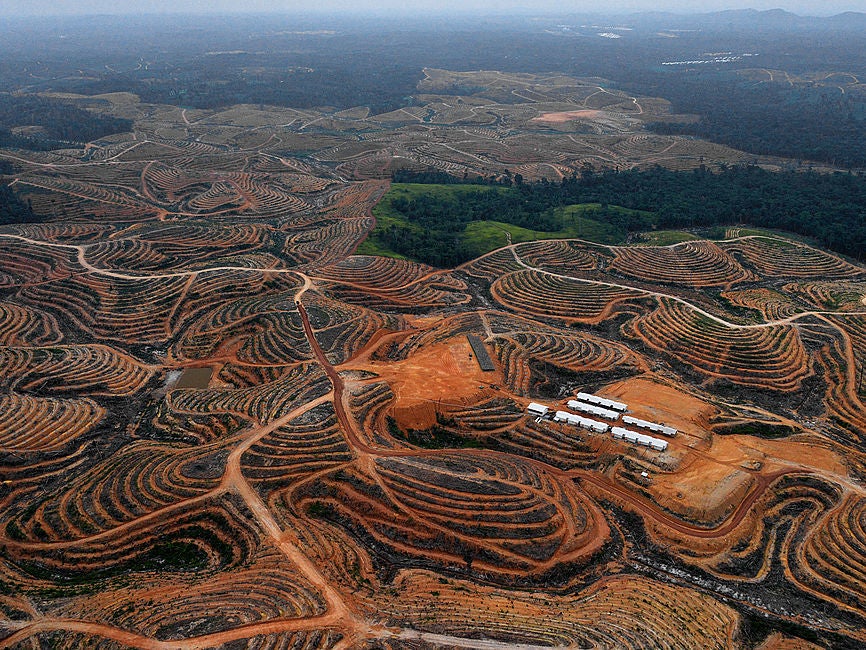Planetary health diet: Developed countries must cut red meat eating by 80% to protect Earth
Plan to minimise climate change and rainforest destruction while preventing millions of premature deaths would require developed nations' meat eating to fall by 80 per cent

Scientists have drawn up a “planetary health diet” to safeguard the Earth from environmental disaster and ensure enough food is available for its booming population to stay healthy.
This would require red meat consumption to halve across the world but fall by more than 80 per cent in developed countries like the US and UK, the study says.
Dairy and sugar consumption would also need to decrease drastically, while the proportion of nuts, fruit, vegetables and legumes like lentils and chickpeas needs to double.
If this is achieved it could minimise the damaging effects of climate change, deforestation, and the loss of animal and plant species while preventing 11 million premature deaths a year.
“We are currently getting this seriously wrong,” Professor Tim Lang, one of the authors from City, University of London, said. “We need a significant overhaul, changing the global food system on a scale not seen before in ways appropriate to each country’s circumstances.”
While this is “uncharted territory” for policymakers, it is not impossible, Mr Lang added.
The world’s population is expected to reach 10 billion by 2050. But people’s health and the planet’s scarce resources are being put under increasing strain by a shift towards high calorie western-style diets.
Health campaigners have already called for meat taxes to save lives, but the Eat-Lancet Commission is the first to propose a diet on environmental grounds as well. It brought together 37 experts from 16 countries specialising in health, nutrition, environmental sustainability, economics and politics to look at how a balance could be struck.
What would the ‘planetary health’ diet look like?
An average daily calorie intake of 2,500 calories would include...
7g of red meat and pork – less than two cocktail sausages
29g of poultry – equivalent to one and a half nuggets
28g of fish – roughly a quarter of a medium sized fillet.
250g dairy – around one glass
Eggs – 1.5 per week
500g of fruit and vegetables – reducing amounts of starchy staples like potatoes
125g of legumes, peanuts, tree nuts or soy – rich sources of plant protein
52g fats – mainly from plant sources
The solution, based on three years of statistical modelling, is a diet consisting of around 35 per cent of calories obtained from whole grains and tubers, and protein mostly derived from plants.
While permitting variations based on local need and culture, the recommendations, published in the Lancet medical journal would require meat to become a weekly or fortnightly treat rather than a daily staple.
The shift to sustainable food production requires food waste to be cut in half and no more additional land to be turned over to agriculture – as is happening with rainforests destroyed for cattle ranching and palm oil production.
To achieve this livestock and fishing subsidies would need to be abolished, with the expansion of marine conservation zones and changes to shopping habits in developed nations – as well as protections for low income groups.
Professor Johan Rockstrom, from the Potsdam Institute for Climate Impact Research in Germany – who co-led the commission, said this would require “nothing less than a new global agricultural revolution”.

“There is no silver bullet for combating harmful food production practices, but by defining and quantifying a safe operating space for food systems, diets can be identified that will nurture human health and support environmental sustainability.”
Free market groups and the meat and dairy industry accused the authors of pushing for the “nanny state” and said meat and dairy were a key part of good dietary health after the Lancet report found key claims, such as dairy being a integral for bone strength, were often not borne out in large studies.
Alexander Anton, secretary general of the European Dairy Association, said: “[The report] goes to the extreme to create maximum attention, but we must be more responsible when making serious dietary recommendations.“
"Milk protein has been recognised scientifically, and in EU legislation, as the most valuable protein for human consumption," he added
Join our commenting forum
Join thought-provoking conversations, follow other Independent readers and see their replies
Comments
Bookmark popover
Removed from bookmarks